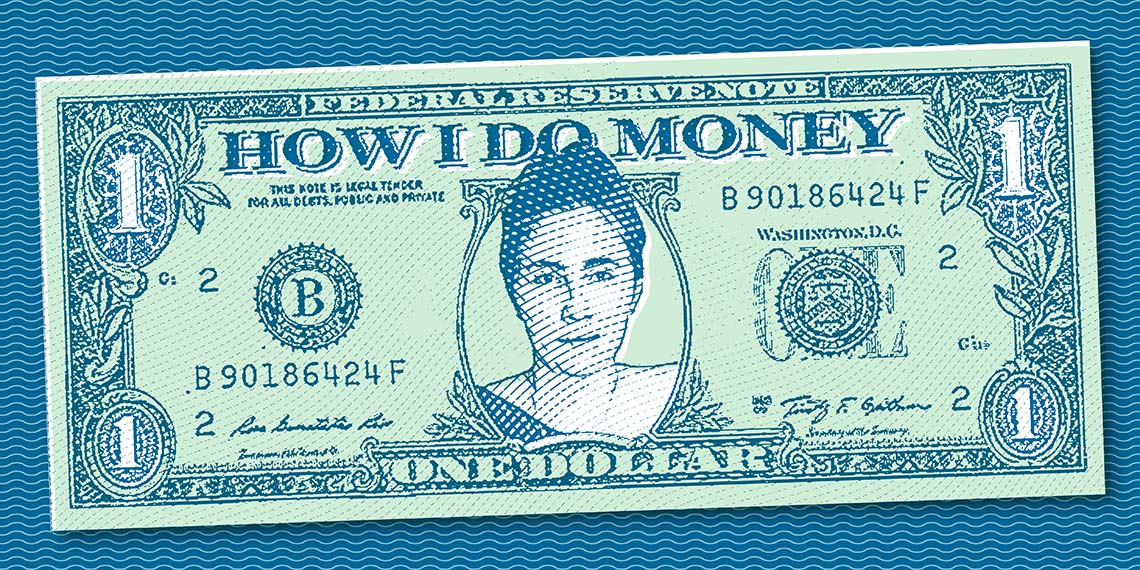
Rose McAleese credits her upbringing as the child of an Irish immigrant for giving her an appreciation of the value of a dollar. The 29-year-old also grew up in a household where her mother was the breadwinner and her dad worked odd jobs. That experience, she says, taught her that women could achieve financial success.
Today, McAleese is a Los Angeles-based screenwriter, which means sometimes she has great-paying freelance gigs and sometimes she doesn’t. Whether she’s flush or pulling in meager $12 royalty checks, she has always made it a priority to save money, and also share what she has with her friends and family.
How did your childhood affect your views on money?
My dad is from Belfast. His mother has a rags-to-riches story; she became successful owning a bar and restaurant in Seattle’s popular Pike Place Market. I spent a lot of my childhood helping out.
I grew up seeing my grandmother hold money over everyone’s heads, seeing my father’s family argue about money all the time. My dad worked as a bartender and a handyman, so he definitely taught me how to stretch a dollar. My mom worked in advertising and was the family breadwinner, but I remember stories about how she had to work twice as hard as men, yet earned less. Money was tight in our house. By the time I was an adult, I just didn’t want anyone to fight over money anymore. So when I had a well-paying, one-year screenwriting gig with Universal, I would send my parents back in Seattle $1,500 a month to help out with their household expenses.
What was it like beginning your career after the 2008 recession?
The recession made me and my friends very aware that opportunities can be scarce, whether you have a college degree or not. That feeling hasn’t changed in the past decade.
I graduated from high school in 2008 and did not have strong enough grades to attend college. Instead, I got work in film production in my hometown of Seattle, which eventually led to me finding screenwriting work in Los Angeles. When I started out, I was living at home, earning $10.50 an hour as a production assistant. But by 2016, I had a one-year contract with Universal that paid $70,000.
As a freelancer, how do you manage your money?
Recently, I took on part-time work as a nanny, and I also work part-time at The Wing, a co-working space for women, helping out at the front desk or welcoming new members—it basically pays my rent—so that’s how I stay afloat. I don’t spend on my car. I drive a 2000 Honda Civic that I bought for $5,000 in 2010.
How would you describe your generation’s attitude toward money?
We stress about money, maybe more than other generations. We’re very aware it’s going to be very difficult to buy a house. We see Instagram influencers and tech millionaires becoming rich by age 25, but we know that’s not the norm. I have friends who owe $200,000 in student loan debt. The cost of living is skyrocketing. I recently had to ask my parents for money. My friends want to live in cities like Los Angeles or San Francisco or New York, but they’re so expensive and that lifestyle is becoming more out of reach. We came of age watching the middle class shrinking, and we’re all very aware of how the gap is growing between the haves and have nots.
What do you like to spend your money on?
When I can afford to, I love to travel. I have all the apps so I can track cheap flights and discounts on hotels. I won’t spend more than $250 on a pair of shoes; I usually buy sneakers. I like to go out with my friends, and I’m not a drinker, so I usually spend about $35 on a dinner out.
What’s a money move you’re most proud of?
“When I was 25, I opened a 10-year CD for $5,000. I don’t even know how much is in it now because I don’t look at it. My goal is to buy a house in Los Angeles, and housing in LA has shot way up. It’s ridiculous, but my goal is still to buy a house by age 35. So I try to pretend the money in that CD isn’t even there, it’s not mine yet. It’s just going to sit there.”
Katrina Woznicki is a writer based in Los Angeles. Her reporting and essays have appeared in National Geographic Traveler, AFAR, The Washington Post, The Los Angeles Times, The Boston Globe, and U.S. News & World Report, among others.
Inset photo courtesy of Rose McAleese.
Are millennials the greatest generation of savers? Find out.

